Station for two: On the issue of “Mukden slap” Samsonova Rennenkampf
The First World War began for the Russian Empire with the tragedy of the invasion of East Prussia in August 1914. This battle caused enormous public resonance not only in Russia but also in Germany. Her official circles were immediately held historical parallels between the defeat of the 2nd army of the general from the cavalry A.V. Samsonov near Tannenberg and the Battle of Grunwald of the Middle Ages, in which the Teutonic Order was defeated by the allied Polish-Lithuanian-Russian armies. The victory of 1914 was positioned as revenge for the defeat in 1410. [2] and there was a certain logic and geographical correlation.
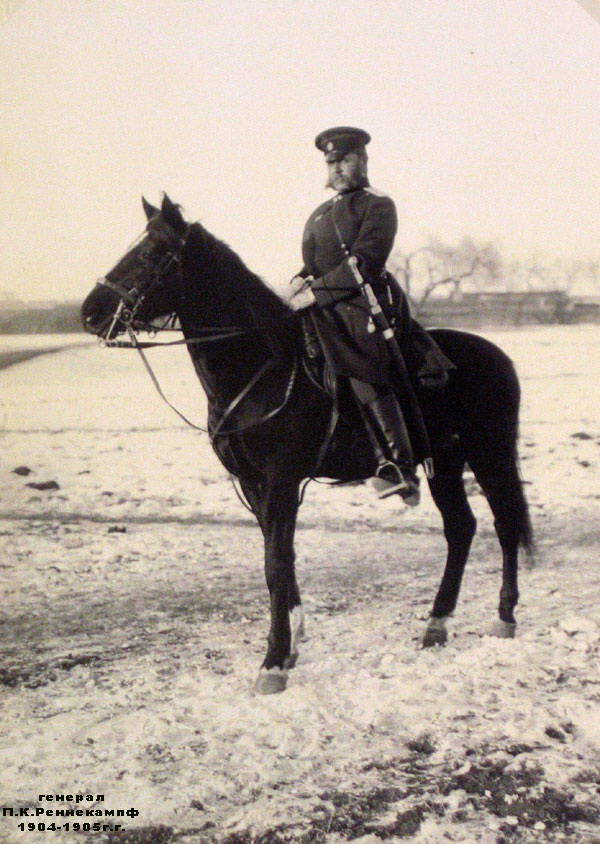
In Russia, one of the pages of the history of the East Prussian operation is often associated with much closer, but territorially remote events of the Russian-Japanese war 1904 – 1905. On its fronts, in Manchuria, the future commanders of the ill-fated armies fought - the aforementioned Samsonov and the cavalry general P.K. von Rennenkampf. However, to a wide circle of readers this milestone of their career is known, rather, not by exploits, but ... by the slap in the face.
To quote the famous Soviet writer Valentin Pikul: “... The last time he fought with the Japanese; after the battles of Mukden, he came to the station platform - right from the attack! - to the train departure. When General Rennenkampf (nicknamed "Yellow Danger") got into the carriage, Samsonov cracked him in a red face:
“There you are, General, for eternal memory ... Wear it!”
Rennenkampf hid in the car. Samsonov, in a rage, shook his whip after the departing train:
“I led my lava into the attack, hoping that this nit would support me from the flank, and he spent the whole night in kaolyan and didn’t even put out a nose from there ...” [3].
Everyone who read the miniatures of Pikul is probably known for this vivid episode. The writer obviously considered him to be his creative success, including this scene and in the texts of his novels [4]. In one of them (“Unclean Power”), Lieutenant-General Rennenkampf, for unknown reasons, turns out to be completely in the latrine (?) Instead of the vegetation of vegetation.
It is customary to believe that he, harboring a grudge against Samson, allegedly, therefore, was slow in advancing the army in the course of the East Prussian operation and almost betrayed him. This article is devoted to the extent to which this “Mukden slap” story corresponds to reality.
Since the version of Pikul's events was already indicated, it would be reasonable to begin the analysis from it. So, according to the writer Samsonov, he insulted Rennenkampf at the railway station after the Mukden battle. The date and area of Samsonov’s attack are not specified, information about it is abstract. However, even a cursory review convinces of the unjustified assertions about leaving Rennenkampf anywhere else during the Mukden operation.
At the very beginning of the battle (February 9), Lieutenant-General Rennenkampf assumed command of Lieutenant-General P.I. Mishchenko, seriously wounded in the battle of Sandepa. The forces of this detachment until February 16 conducted reconnaissance; then Rennenkampf a detachment of four hundred Cossack hundreds was formed to destroy the railway bridge in the Japanese rear. The sabotage was successful, but had virtually no effect on the development of hostilities. Already 26 February Rennenkampf returned to the command of the so-called. The Qinghechen squadron [5] and joined in the fighting. A.I. Denikin, who wrote: "The Rennenkampf detachment, with stubborn, bloody battles, gained deserved fame" [6], if he exaggerated, then, apparently, only stylistically ...
Almost immediately after the return of Rennenkampf, 28 February, was ordered to stop the supply of food for his squad, and the situation with him will remain tense until the completion of the operation [7]. During the retreat of the Russian armies to the Sypingai heights, the detachment was invariably in the rear guard. The loss of his personnel during the Mukden battle was recognized by the Military Historical Commission for describing the Russian-Japanese war as the highest in the entire I Army. It is appropriate to ask the question - how is the role of the head of the Siberian Cossack Division, General Samsonov, assessed in this major work?
On the pages of the mentioned multi-volume edition, the actions of a huge number of parts and formations, including “detachments” like Qinghechensky, are described. The intensity of their formation in the years of the Russian-Japanese war reached a peak: “There were cases of command by corps commanders of such tactical units, which included not even a single battalion of corps entrusted to them ... In one detachment, by force in the 51 battalion, there were military units of all three armies, from 11 corps, 16 divisions and 43 various regiments »[8]. Sometimes even the actions of officers with the rank of captain were honored with a separate consideration. On the attack of the Cossacks of General Samsonov, especially not supported by Rennenkampf from the flank, the authors-compilers of this fundamental research remain silent. Simply put, this attack was not, as there was no scandal generated by it on the railway platform in Mukden.
Thus, the version of events replicated in Pikul’s works does not hold water. However, the matter is not limited to it at all - another fiction writer, writer Barbara Thakman, in her famous book “The August Guns” reflected the following vision of the situation: “Hoffman claimed that he knew about the quarrel between Rennenkampf and Samsonov, which took place even during the Russian-Japanese war, where German observer. He says that the Siberian Cossacks of Samson, demonstrating courage in battle, were forced to surrender the Yentai coal mines due to the fact that the Rennenkampf cavalry division did not support them and remained in place, despite repeated orders, and that Samsonov hit Rennenkampf during sec. about this on the platform of Mukden station ”[9].
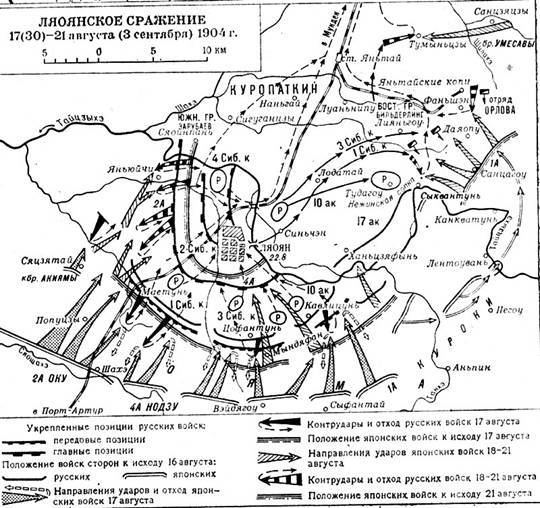
We are talking about the Liaoyang battle - the events of the end of August 1904. When the Russian command became aware of the preparation of the crossing of the forces of the Japanese General Kuroki to the left bank of the r. Taijihe bypassing the Russians ’flank, Kuropatkin decided to withdraw his troops deep into the front. It was then that the Russian cavalry units under the command of Samsonov were transferred by a forced march to the Yantai coal mines [10] for their further defense. To the south is the 54 th Infantry Division, Major General N.A. Orlova. On the morning of September 2, 1904, the latter launched an attack on the 12 of the Japanese brigade Shimamura. Its positions were located on the heights south of the village of Dayaop, while the Russians had to attack in the bush of Kaolin. Shimamura launched a counter attack east of Dayayaop, covering Orlov’s left flank and attacking the right. Russian troops fluttered and fled — in a panic they fired from the thicket of the opposing enemy in the thickets of kaolin, but it was indiscriminate fire on their own. In a hurry, he reassembled the troops (there were hardly more than a battalion). Orlov again tried to attack the Japanese in the direction of Dayaopa, but his orders were again scattered in the Gaolin, and the general himself was wounded.
According to the testimony of his contemporaries, the participants of this escapade were awarded the poisonous nickname "Orlov trotters". The tactical result of it was bleak - the tangible losses were useless, with more than 1,500 people killed and wounded by Samsonov [11] were knocked out from the Yantai mines. Rennenkampf all this time was in the hospital after being seriously injured in the leg of 13 in July 1904. [12] He could not help Samson, much less please him under the “hot hand”. Therefore, the version of events proposed by Takman is also incorrect. To the credit of the author, she herself was inclined to this conclusion: "It is doubtful that Hoffman believed his fairy tale or only pretended to believe" [13].
So, Takman connects the emergence of the story of the conflict between Samsonov and Rennenkampf with the figure of the officer of the German General Staff, Max Hoffman. This is where almost all the authors mention this episode. One enumeration of its variations could constitute a separate bibliographic review.
For example, here’s how the American writer Bevin Alexander portrayed the situation relatively recently: “Hoffman served as a military observer during the 1904 – 1905 Russian-Japanese War and witnessed a verbal argument between Samsonov and Rennenkampf on the railway platform in Mukden, in Manchuria, which ended in real a fight "[14]. Among specialists, this version, in particular, was picked up by Professor I.M. Dyakonov - really the largest specialist, however, in the history of the Ancient East. He wrote about the mediocre actions of “the chief of the General Staff of илиilinski and the generals Samsonov and Rennenkampf (who were at enmity with the slaps in the face, which they slapped on each other in 1905 on the railway platform in Mukden)” [15].
Historian TA Sobolevo these slaps probably seemed inconclusive, and therefore on the pages of her book “Samsonov came to the train departure when Ranenkampf got into the carriage and publicly threw him with a whip at all” [16].
Not less than the original version of the events expressed by the American war correspondent Eric Durshmid. He connects the conflict between the generals with the defense of the Yantai mines and, as we have already found out, this is not true. However, we abstract away from this convention and suppose that between Samsonov and Rennenkampf, a quarrel really broke out on the platform of the Mukden railway station. A word to the author: “Furious, Samsonov rushed to Rannenkampf, took off his glove and slapped a weighty slap in his face to his unreliable ally. A moment later, two generals rolled, like boys, on the ground, tearing off buttons, orders and epaulets. Solid people, division commanders beat and strangled each other until they were taken away by officers who happened to be near. ”[17] The subsequent duel between the generals allegedly seemed inevitable, but Emperor Nicholas II allegedly prevented her with his personal intervention.
For the scuffle Samsonov and Rennenkampf in the book Durshmida observes all the same indispensable Hoffman. A failed duel between them also has long been featured in foreign literature [18]. It is in this detail of the plot that one of its flaws is hidden.
Indeed, the duel as a kind of reaction to an insult was practiced in the Russian officer environment. For a long time it was banned, which at some point even led to the spread of the so-called. “American duels”, reminiscent of the medieval ordeal: use of pills, one of which is deadly poisonous, launching into a darkened room with opponents of a poisonous snake, etc. Therefore, in May 1894, the “Rules on litigation of incidents in officers”, which actually legalized duels among officers. The decision on their relevance or inappropriateness was transferred to the competence of the courts of the company officers (honor vessels), although their decisions were not binding [19]. However, it was forbidden to challenge officers due to a conflict related to the service.
In addition, intervention in the quarrel of Nicholas II himself seems highly unlikely. The king learned about the fights that had already taken place from the report of the Minister of War, who was provided with court materials on command and only then made a decision about the proceedings. Rumors of a future duel, no matter how quickly they did not spread, would hardly be ahead of the new appointments of opponents, who in the fall of 1905 were on the opposite borders of the empire. And one way or another they would have caused a certain resonance in secular circles of the capital - as is known, a duel between A.I. Guchkov and Colonel S.N. Myasoyedov instantly hit the pages of newspapers, and the police took urgent measures to prevent the fight [20]. To take seriously this detail, woven into the context of the quarrel, it would be rash, like many newspaper notes similar to it of that time: “Vossische Zeit.” Reports that Generals Kaulbars, Grippenberg, Rennenkampf and Bilderling, everybody for himself, called Kuropatkin on duel for the reviews about them in the book about the Russian-Japanese War ”[21].
The press still remains greedy for such scandalous plots from history, so the publication in the modern periodicals of the previously unknown Samsonov monologue after the slap in the face Rennenkampf does not surprise: “You have the blood of my soldiers, sir! I no longer consider you either an officer or a man. If you like, please send me your seconds ”[22]. However, the confidence in this mythology of such a major expert as the late Professor A.I. Utkin [23].
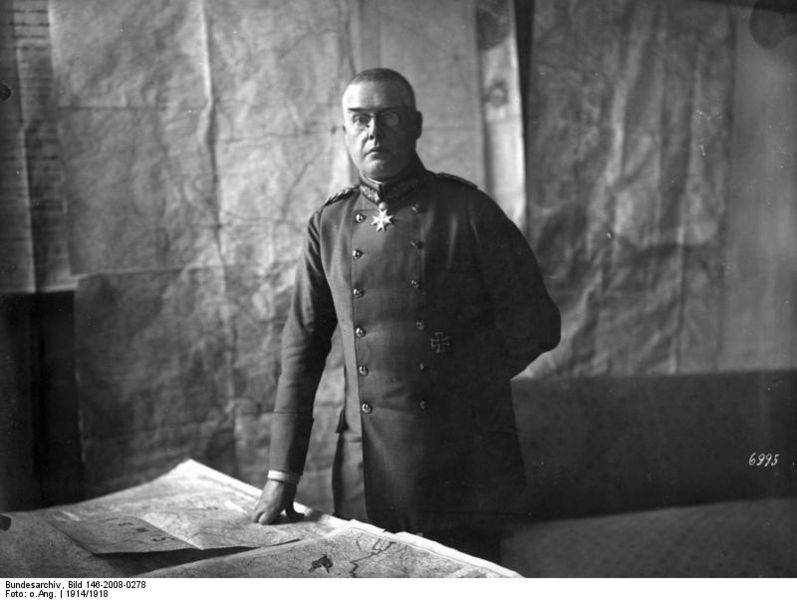
Meanwhile, it is necessary to identify the source of information about the notorious “Mukden slap”. As already noted, most of the authors telling about her refer to Max Hoffman as an eyewitness. But in fact, if someone from foreign military attaches could have witnessed a hypothetical skirmish between Samsonov and Rennenkampf, then either the Austro-Hungarian agent, Captain Sheptitsky (attached to the Trans-Baikal Cossack Division), or the French Shemion (attached to the Siberian Cossack Division, the Siberian Cossack Division, the Siberian Cossack Division, the Siberian Cossack Division, the Xinjiang Cossack Division, attached to the Siberian Cossack Division, the Siberian Cossack Division, the Chinese Cossack Division) ) [24]. During the years of the Russian-Japanese war, Max Hoffman was a military agent at the headquarters of the Japanese army [25] and could not be an eyewitness to anything at Mukden station after the battle.
The last doubts in this are waving his memories: “I heard from the words of witnesses (sic!) About the sharp collision between both commanders after the Liaoyang battle at Mukden station. I remember that even during the Battle of Tannenberg, we spoke with General Ludendorff about the conflict between both enemy generals ”[26].
Hoffman turned out to be more honest than many writers and historians who are not quite conscientiously appealing to him. Moreover, despite the commitment of the most memoirist version of the scandal after the abandonment of the Yantai mines [27], the situation depicted by him looks the most plausible of all the above. It was successfully formulated by the venerable military historian G. B. Liddell Harth: “... Hoffmann learned a lot about the Russian army; he learned, among other things, the story of how the two generals, Rennenkampf and Samsonov, had a big quarrel on the railway platform in Mukden, and it almost came to insults by action ”[28]. About slap, and the more fights, beating with a whip and the requirements of satisfaction, they are not even mentioned.
Could a similar situation take place? It should not be categorically rejected. A quarrel of generals could flare up, for example, after a battle on the r. Shah In it, the Samsonov detachment and the Rennenkampf division fought on the same sector of the front as part of General G.K. Stackelberg [29]. The actions of these parts were sometimes inconsistent and not only the fault of Rennenkampf. He covered the left flank of the cavalry of Samsonov, 9, which came out to Xianshanzi on October 1904, and in the morning of the same day tried to move further to the village of Bensiha with the support of the Lyubavin infantry squad. However, due to the hesitant actions of the latter, Rennenkampf also declined his idea.
October 11 last tried again to attack the fortified positions of the Japanese and was again forced to withdraw - this time because of the omission of none other than Samsonov. At the end, he retreated altogether, depriving Rennenkampf of the opportunity to organize another night attack. And it was then that the head of the Trans-Baikal Cossack Division, in turn, refused to support Samsonov, who had planned the attack, but had not decided on it. But this was not the result of the tyranny of Rennenkampf, but of Shtakelberg’s order to suspend the offensive of the entire Eastern Detachment [30].
The tactical initiative was missed - on October 12, Japanese forces launched an offensive. Even on the eve, Samsonov and Rennenkampf had the same task - advancement with the exit of General Kuroki’s army to the rear. However, the next day, he pulled up artillery to his right flank and under her fire Samsonov and Rennenkampf began to retreat from the positions. In this extremely difficult situation, including their own fault, the likelihood of a quarrel between the generals was much higher than ever before. But, according to the testimony of Baron P.N. Wrangel, an eyewitness to the events being described, didn’t happen anything like that: “... Coming up to the battery, General Rennenkampf dismounts and, moving aside with General Samsonov, confers with him for a long time about something” [31].
Be that as it may, the fictitiousness of Hoffman's "evidence" becomes apparent. Perhaps in his writings he focused on the quarrel between Samsonov and Rennenkampf with a quite common goal: to give post-factum more significance to his role in organizing the defeat of one Russian army and ousting another from East Prussia in 1914. It is strange that an experienced Prussian general staff member put on one step painstaking operational work and rumors a decade ago, but he could easily trump that he had notified the command of the 8 army about them.
As we could see, this example of Hoffman’s self-promotion gained quite a few supporters in domestic and foreign literature. One of the first Soviet authors to gain the confidence of the Soviet authors was A.K. Kolenkovsky [32]. Almost at the same time with him, the most prominent military historian of the Russian Diaspora, A.A. Kersnovsky, on the contrary, was indignant: “With the light hand of the notorious General Hoffman, the foreign press avoided ridiculous fables about some kind of personal enmity that allegedly existed since the Japanese war between Rennenkampf and Samsonov, and that, say, for this reason, the former did not give aid to the second. The absurdity of these statements is so obvious that they have nothing to refute ”[33]. In modern literature, the version of the "Mukden slap in the face" was unambiguously rejected by the writer V.Ye. Shambarov [34] is by no means an author who is scientifically scrupulous. On the whole, the situation that has developed in the historiography of the issue in question directly points to the insufficient knowledge of the events of the military history of Russia during the last reign.
This depressing conclusion is especially true with regard to the history of the First World War and even such a significant page as the East Prussian operation. The causes and circumstances of its unsuccessful outcome for the Russian army have long been named and discussed by experts. The significance of this battle within the framework of further developments remains a matter of debate - there are even opinions that Tannenberg 1914 has predetermined and substantially brought the collapse of the Russian empire [35]. However, it is completely incorrect to associate it with some kind of mythical quarrel between 2's generals in the years of the Russian-Japanese war, as E. Durshmid did nothing. Conscious or involuntary solidarity with him of some domestic historians can not help but surprise. Against this background, the skeptical attitude of the German historiography proper to the version of the conflict of Samsonov and Rennenkampf is indicative. After all, as the English historian J. Wheeler-Bennett reasonably noted, if the battle of Tannenberg was lost by the Russian troops at the railway station in Mukden ten years earlier, the German command cannot consider the victory in it as a merit [36].
The history of mankind develops in parallel with the mythology, they were and remain inextricably linked. However, until World War I researchers didn’t take the slap of generals, the many faces of the maid of honor, leading to the “German footprints” and the golden keys to it, the study of its history will be slowed down by the inertia of the sum of these and a number of other myths.
___________________________________________
[1] Ilf I.A., Petrov E.P. Twelve Chairs. Golden calf. Elista, 1991. C. 315.
[2] Pahalyuk K.A. East Prussia, 1914 – 1915. Unknown of the known. Kaliningrad, 2008. C. 103.
[3] Pikul V.S. Historic miniatures. T.II. M., 1991. C. 411.
[4] See for example: Pikul V.S. I have the honor: a novel. M., 1992. C. 281.
[5] V.I. Ivanov Mukden battle. To the 100 anniversary of the Russian-Japanese war 1904 – 1905. "Russia and the APR". 2005. No. 3. C. 135.
[6] Cit. by: Denikin A.I. The path of the Russian officer. M., 2002. C. 189.
[7] Russian-Japanese War 1904 – 1905 T.V. Mukden battle. Part of 2: From departure to the river. Hunhe to concentrate on the Sypingai positions. SPb., 1910. C. 322, 353.
[8] Airapetov OR Russian army on the hills of Manchuria. "Questions of history." 2002. No. 1. C. 74.
[9] Takman B. The First Blitzkrieg, August 1914. M .; SPb., 2002. C. 338.
[10] Russian-Japanese War. M .; SPb., 2003. C. 177.
[11] Portuguese R.M., Alekseev P.D., Runov V.A. World War I in the biographies of Russian military leaders. M., 1994. C. 319.
[12] P. Machs, Without Fear and Reproach! "Hourly". 1962. No. 430. C. 18; Showalter DE Tannenberg: Clash of Empires, 1914. Dulles (VA), 2004. P. 134.
[13] Takman B. The First Blitzkrieg, August 1914. C. 339.
[14] What are the rules of war? NY, 13. P. 2004. In the lane: Alexander B. How wars are won. M., 285. C. 2004.
[15] Diakonoff IM The paths of history. Cambridge, 1999. P. 232. In the per .: Dyakonov I.M. Paths of history: From the most ancient man to our days. M., 2007. C. 245 – 246.
[16] Cit. by: Sobolev, TA The history of encryption business in Russia. M., 2002. C. 347.
[17] Durschmied E. The hinge factor: How much and how much stupidity have changed history. Arcade, 2000. P. 192. In the per .: Durshmid E. Victory, which could not be. M .; SPb., 2002. C. 269 – 270.
[18] See, for example: Goodspeed DJ Ludendorff: Genius of World War I. Boston, 1966. P. 81.
[19] M. Shadskaya The moral character of the Russian officer of the second half of the XIX century. "Military Historical Journal." 2006. No. 8. C. 4.
[20] Fuller WC Lnd., 2006. P. 92. In the lane .: Fuller U. The Internal Enemy: Spying and the Fading of Imperial Russia. M., 2009. C. 112.
[21] See: Russian word. 26 (13) February 1906
[22] See: Chudakov A. "You went to the Mazury bogs ...". "Union Veche". Newspaper of the Parliamentary Assembly of the Union of Russia and Belarus. August 2009 G.S. 4.
[23] See: A. Utkin Forgotten tragedy. Russia in the first world war. Smolensk, 2000. C. 47; his own World War I. M., 2001. C. 120; his own Russian Wars: The 20th Century. M., 2008. C. 60.
[24] See: O. Yu. Danilov Prologue of the “Great War” 1904 – 1914 Who and how pulled Russia into a world conflict. M., 2010. C. 270, 272.
[25] Zalessky K.A. Who was who in the First World War. M., 2003. C. 170.
[26] M. Hoffman. The war of missed opportunities. M.-L., 1925. C. 28 – 29.
[27] Hoffman M. Tannenberg wie es wirklich war. Berlin, 1926. S. 77.
[28] Liddel Hart BH The Real War 1914 – 1918. Lnd., 1930. P. 109. In the per .: Liddel Garth B.G. The truth about the First World War. M., 2009. C. 114.
[29] A. Ganin "The bloody dawn was lit ..." The Orenburg Cossacks in the Russian-Japanese war. In: Russian-Japanese War 1904 – 1905. A look through the century. M., 2004. C. 294.
[30] Russian-Japanese War. C. 249.
[31] Cit. by: Wrangel PN Commander in Chief / Ed. V.G. Cherkasov St. George. M., 2004. C. 92.
[32] A.K. Kolenkovsky The maneuver period of the first world imperialist war 1914 M., 1940. C. 190.
[33] Cit. by: Kersnovsky A.A. History of the Russian army. T.IV. M., 1994. C. 194.
[34] Shambarov V.E. For Faith, Tsar and Fatherland. M., 2003. C. 147.
[35] See: Airapetov OR "A Letter of Hope to Lenin." East Prussian operation: causes of defeat. "Motherland". 2009. No. 8. C. 3.
[36] Wheeler-Bennett JW The Hindenburg: The Wooden Titan. Lnd., 1967. P. 29.
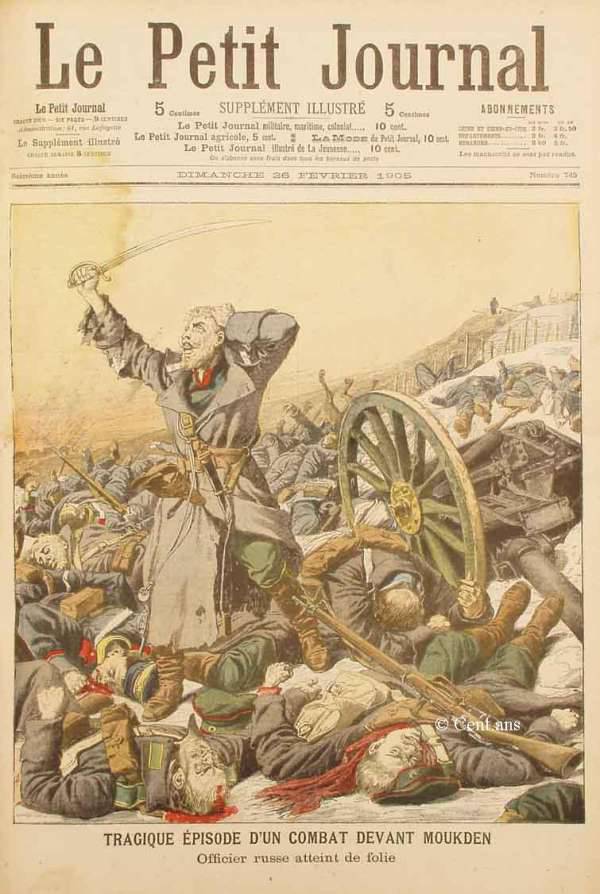
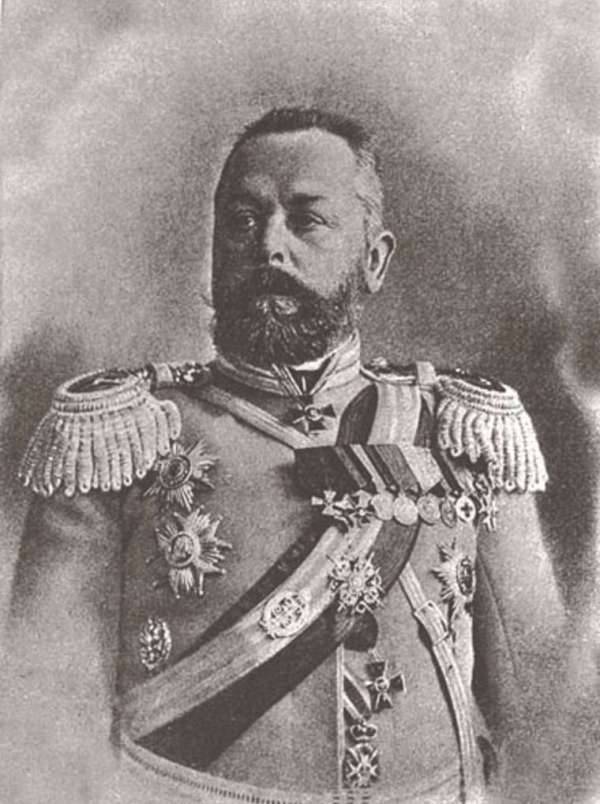
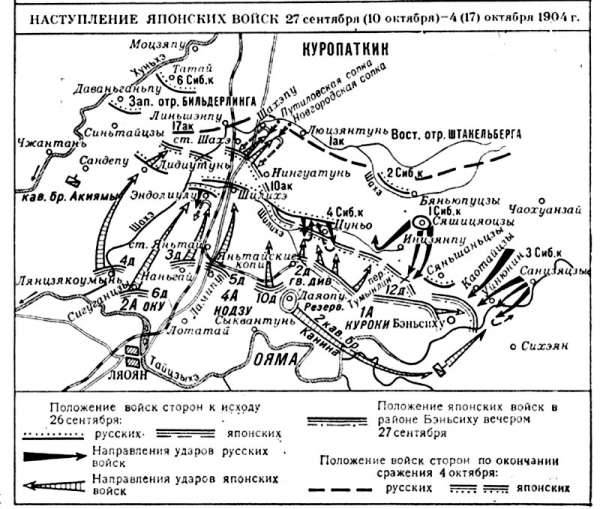
Information